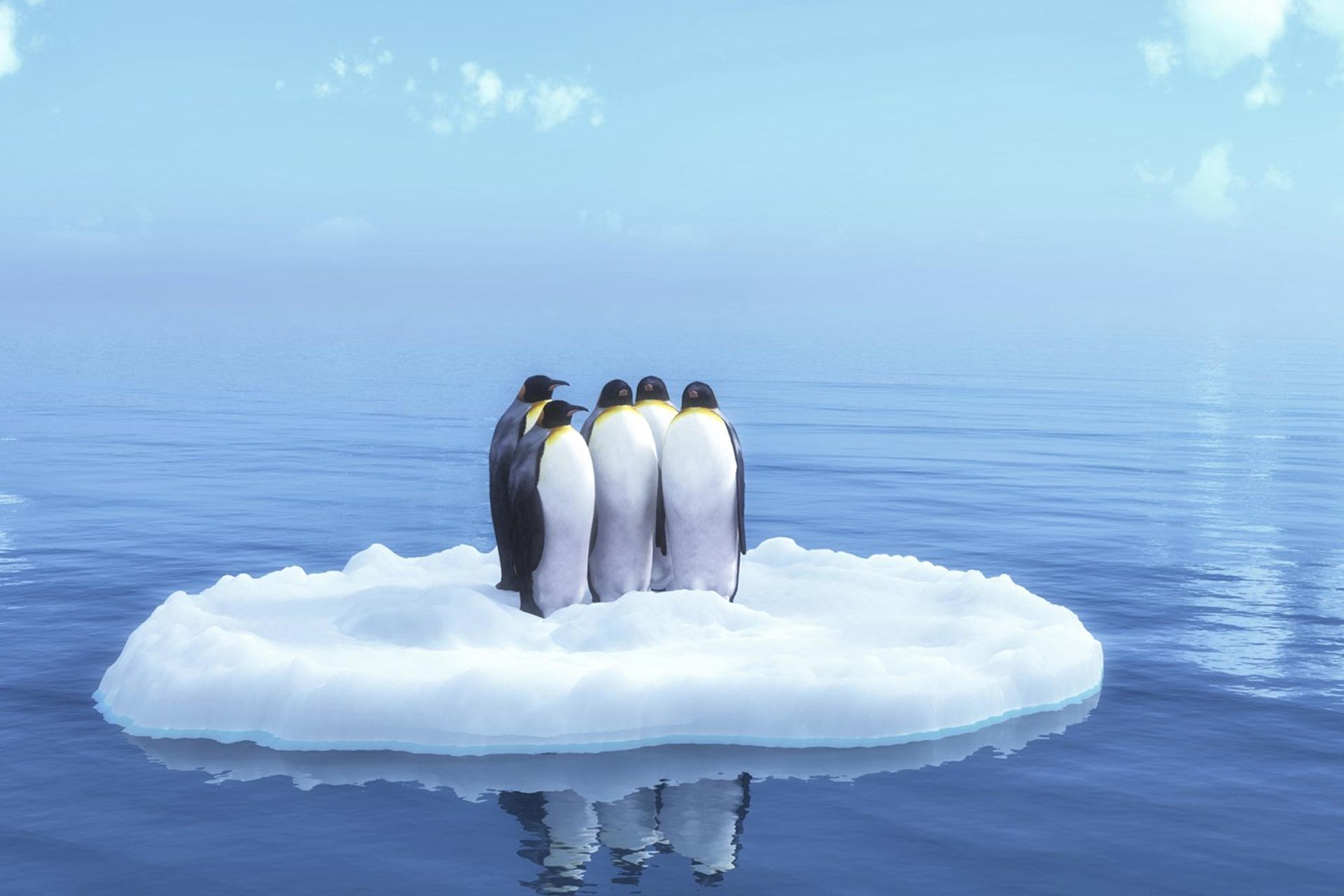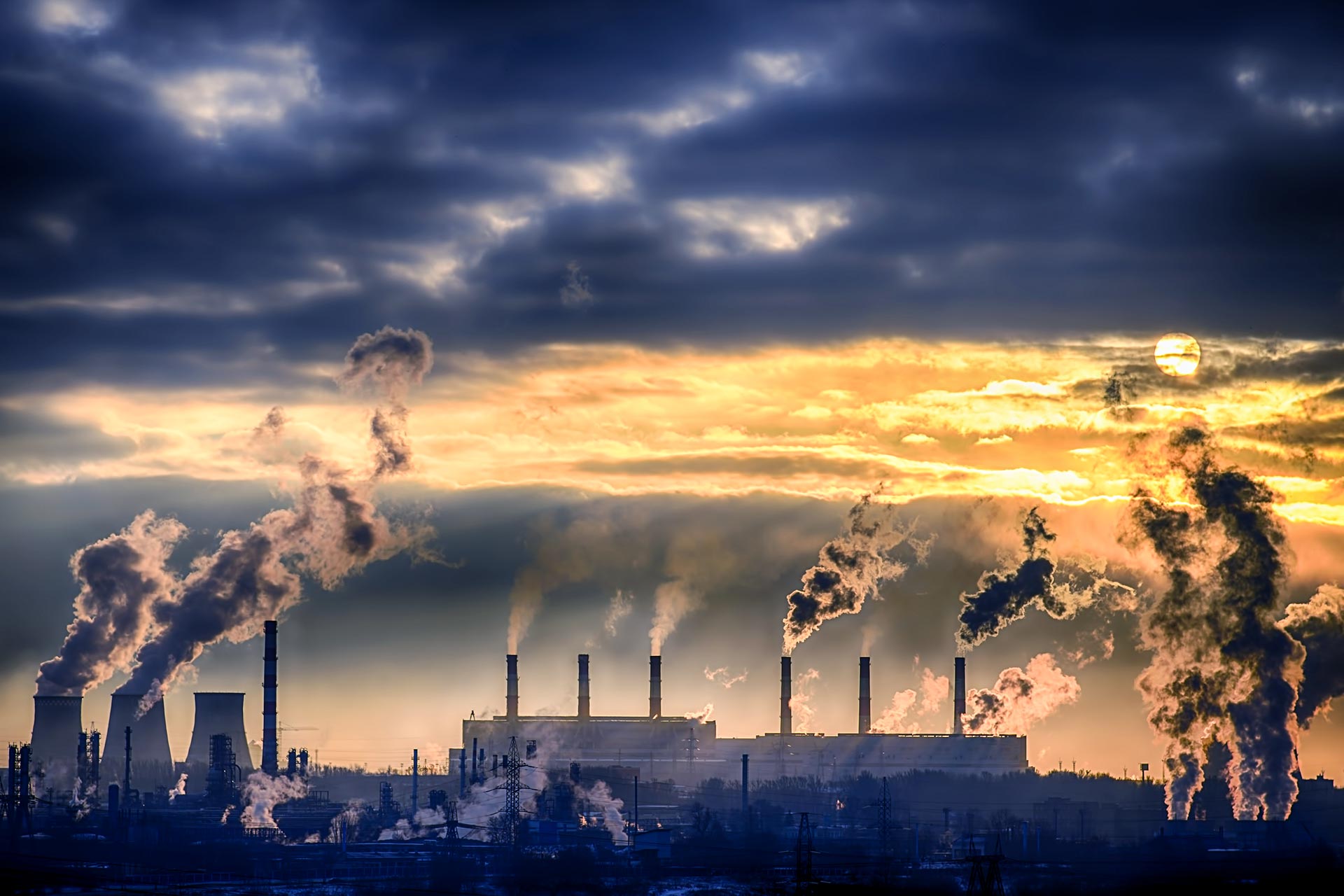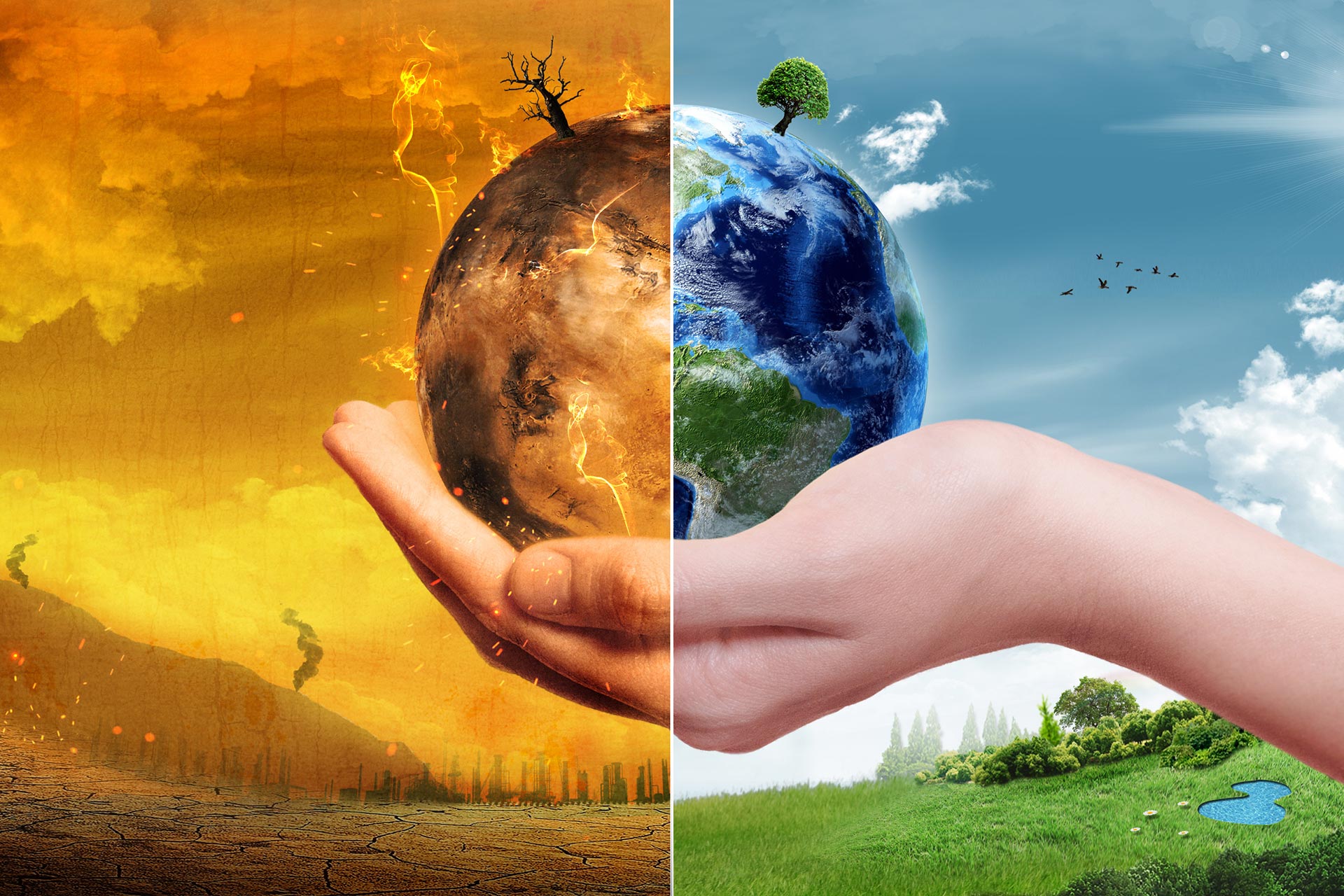Altering seasons, increasingly drought winters, floods, melting glaciers, rising water levels… The humankind is facing the threats brought by modernization and development. It is reported that the number of meteorological disasters recorded in the 2000s are three times that of those in the 1960s. The main reason for this increase are global warming and climate change, which have been mentioned frequently in recent years. The success in fighting against this negative change does not only make possible controlling greenhouse gases, but individual and international common action plans must be carried into effect as quickly as possible.
Scientists point out that the main reason for climate change is the need for high amounts of energy caused by mechanisation, modernization of production, population increase and urbanization, which are the outcomes of industrial revolution. This energy is mostly acquired from fossil resources such as coal and petrol, which in turn causes environmental destruction and alters the atmospheric composition.
Climate change is defined as “artificial altering the climate outside the range of its inherent variability by pushing ecological limits with human activities”. This is currently among the biggest threats facing the world we live in. Global warming is defined as the overall increase in temperatures measured on land, sea and in the air due to greenhouse gases, which is believed to be the outcomes of gases emitted into the atmosphere. Greenhouse gases do not prevent sun beams from reaching the earth, but they prevent disposal of the accumulated heat, therefore prevent cooldown. This causes a natural greenhouse gas effect in the atmosphere, but an exaggerated one when greenhouses gases increase over tolerable levels, leading to storage of more than necessary heat. These all lead to global warming.
It is reported that since 1850, when regular measurements started to be taken, the global temperature increased by 0.76°C. In an international scientific meeting organized by the UN, it was declared that unless competent measures are taken, the average temperature will rise this year by 1.8 – 4.0°C, possibly to 6.4°C.
Limiting global warming to 1.5°C and the urgency of this
On the other hand, the scientific report published by IPCC, the Intergovernmental Panel on Climate Change, highlights the urgency of limiting global warming to 1.5°C. In their remarks on the report, which was published in 2018 with approval from 195 countries, WWF’s Climate Change Principal Consultant Dr. Stephen Cornelius states “The commitment made by these countries in regards to reducing emissions is still insufficient in terms of limiting global warming to 1.5°C”. The World Bank has also released warnings about the social outcomes that the climate change could lead to. It is estimated that as a result of events such as drought, floods, eustacy, reduction in agricultural production and erosion, a total of 143 million people will attempt to leave southern countries and migrate to the northern countries within 30 years.

Disappointment in Struggle
With the UN Climate Change Framework Convention and the following Kyoto Protocol, governments took important steps into reducing greenhouse gas emissions. However these actions are insufficient and on top of this, no complete understanding was reached among the countries in terms of increasing reduction of greenhouse gases during the climate change negotiations, which poses as an important obstacle. Finally, the 25th UN climate summit, where the steps that need to be taken by governments to counteract global warming were approached, ended in disappointment. The decisions taken at the COP25 summit, held in Madrid, where approximately 200 countries were represented, were not up to expectations. In the final declaration, it was admitted that there was an extensive gap between the goals set in the Paris Convention and the current commitments of the governments and the signatory countries were called upon to strengthen their commitments regarding reducing greenhouse gases in 2020.
We can summarize the main topics relating to the measures required to counteract global warming and climate change as follows:
- To minimize use of and investments for fossil fuel.
- To change finance system to aim for a low-carbon world. To provide resources for renewable energy, clean technologies and low-carbon infrastructure and to create incentives for such actions.
- To efficiently use energy and prevent wastage. To transition to environmentally friendly new technologies which enable more efficient use of energy, to increase heat insulation.
- To renounce consumerism. To prefer locally or regionally produced products instead of imported products, to lessen use of petrol-based synthetic products produced from plastics, nylon and PET by way of using products grown using natural methods.
Saving our future from pollution…
Creating a sustainable world and leaving a habitable ecosystem for new generations are common responsibilities of us, the humankind. The key requirements of using resources efficiently, investing more into renewable energy, ceasing use of fossil fuel and developing sustainable strategies are waiting to be addressed by the governments.

References
ALPÖGE Atilla (2018), Geleceğimizi Biçimlendirmekte Olan Bir Süreç: Değişimden Dönüşüme, İTÜ Vakfı Dergisi, Sayı 80, 21.
İklim Değişikliği Konferansı (2019), İklim Değişikliği Alanında Ortak Çabaların Desteklenmesi Projesi, Türkiye Cumhuriyeti Çevre ve Şehircilik Bakanlığı, Türkiye Cumhuriyeti Hazine ve Maliye Bakanlığı, WEglobal, s.5-8.
AB Türkiye Delegasyonu (2008), AB Öncülüğünde İklim Değişikliği ile Mücadele, Avrupa Komisyonu Basım-Yayın ve İletişim Genel Müdürlüğü, Brüksel, 3.
BAŞOĞLU Aykut (2014), Küresel İklim Değişikliğinin Ekonomik Etkileri, KTÜ Sosyal Bilimler Dergisi, Derleme, s.175-176.
KÖSE İsmail (2018), İklim Değişikliği Müzakereleri: Türkiye’nin Paris Anlaşması’nı İmza Süreci Ege Stratejik Araştırmalar Dergisi 57
İKV-İktisadi Kalkınma Vakfı (2013), 2020’ye Doğru Kyoto-Tipi İklim Değişikliği Müzakereleri, İktisadi Kalkınma Vakfı Yayınları, Yayın No: 268,
GÜDER Nazif (2018), Doğayı Koruma Perspektifinden İklim Değişikliği, İTÜ Vakfı Dergisi, Sayı 80, 42.
WWF (2018), Yeni IPCC Raporu: Küresel Isınmayı 1,5°C’deTutmak İçin Acilen Harekete Geçilmeli, https://www.wwf.org.tr/basin_bultenleri/basin_bultenleri/?8100/yeni-ipcc-raporu-kuresel-isinmayi-birbucuk-derecede-tutmak-icin-acilen-harekete-gecilmeli
DW (2019) BM İklim Zirvesi “Hayal kırıklığı” yarattı, Deutsche Welle,
https://www.dw.com/tr/bm-iklim-zirvesi-hayal-k%C4%B1r%C4%B1kl%C4%B1%C4%9F%C4%B1-yaratt%C4%B1/a-51684326


